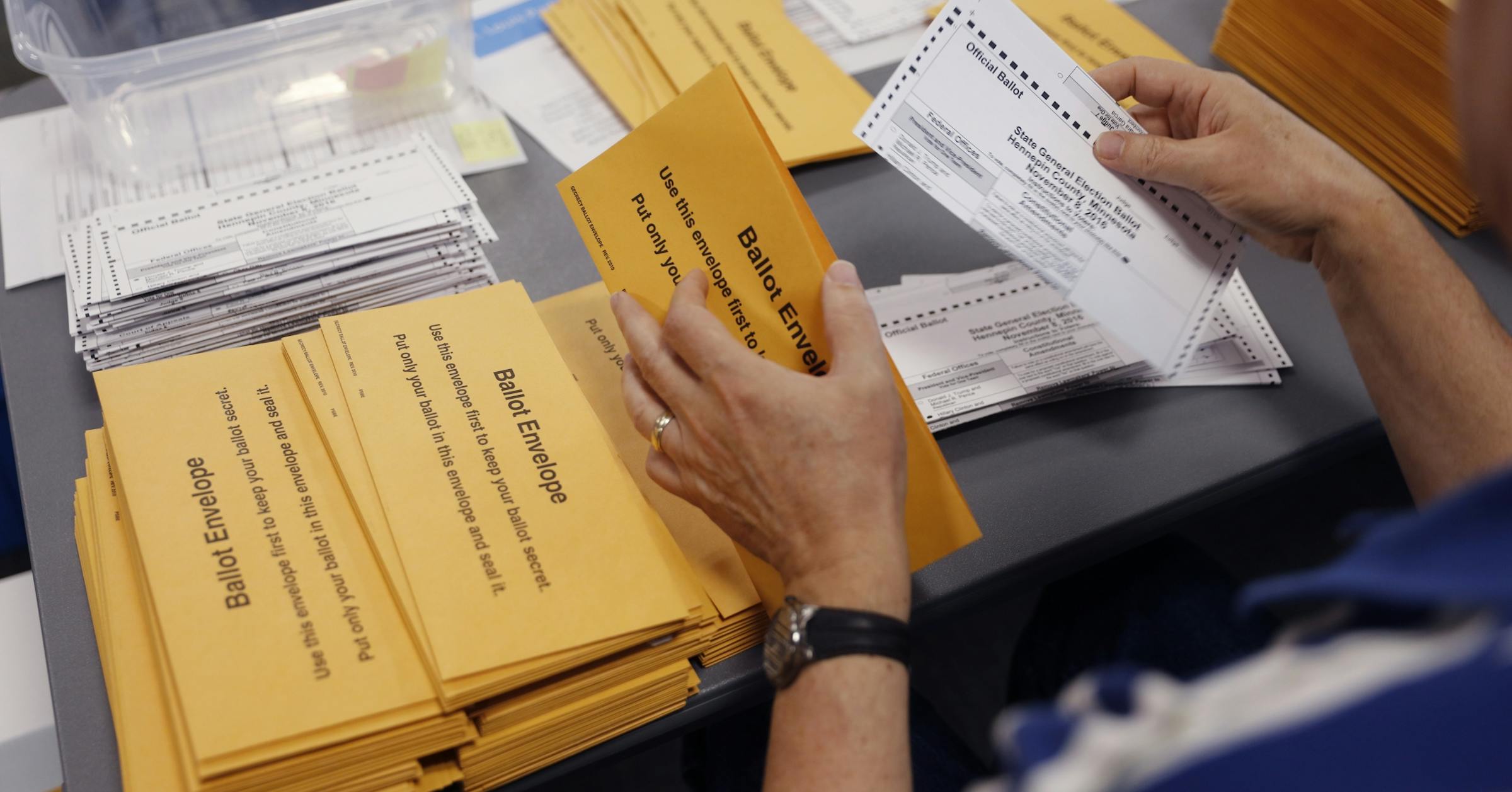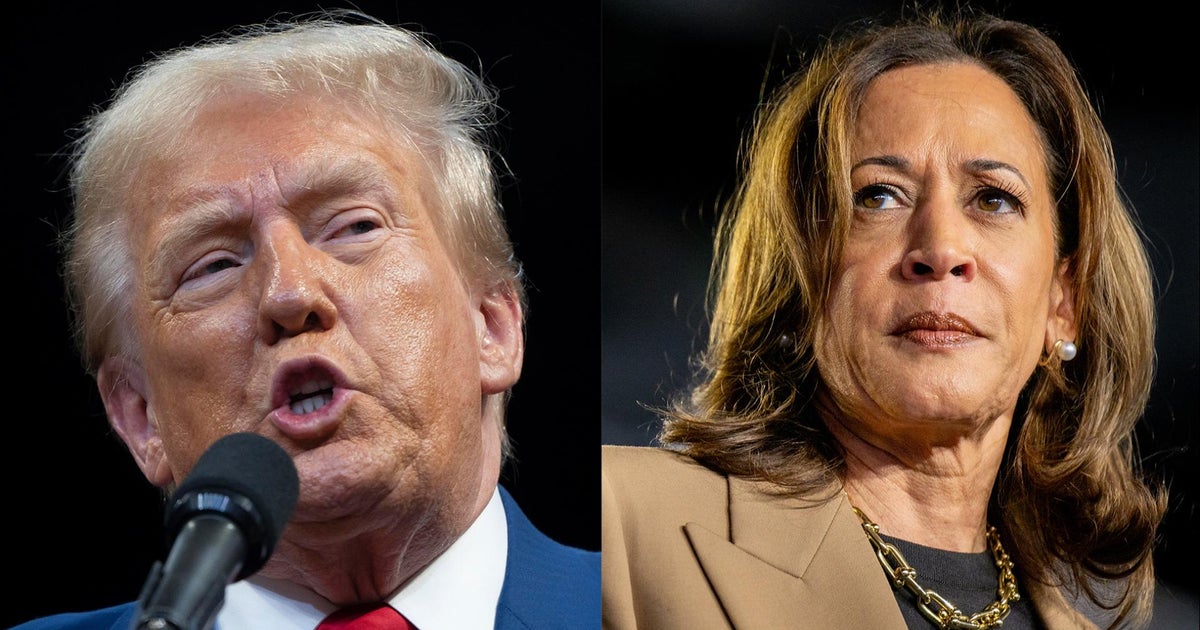Star Tribune
How Trump tariffs would shock U.S., world economies

Gas prices would increase by as much as 75 cents per gallon in the Midwest, where most refined products come from Canada, according to Patrick De Haan, an analyst at GasBuddy. Overall, the Peterson Institute for International Economics said Trump’s tariffs would cost the typical household $2,600 per year; the Yale Budget Lab said in an estimate released Wednesday that the annual cost could be as high as $7,600 for a typical household. As a share of their income, the poorest Americans would pay 6 percent more with 20 percent tariffs, compared with 1.4 percent more for the richest 1 percent, according to the Institute on Taxation and Economic Policy, a left-leaning think tank.
“We’re not talking about caviar — these are things that people have to buy. They’re essentials,” said Neil Saunders, a managing director at the analytics company GlobalData.
Economists say it would take several painful years for alternative domestic producers to emerge for many goods. For instance, almost all shoes and 90 percent of tomatoes sold in the country are imported, according to the Peterson Institute. And the United States does not even have the climate necessary to produce many food items – such as coffee, bananas, avocados, to say nothing of Chilean sea bass – at the necessary scale to meet domestic demand, said Joseph Politano, an economic analyst who has written on the subject on his Substack.
Trump’s tariffs would also reverberate through Wall Street and global markets, inviting turmoil that would affect investors and companies worldwide. Those effects would probably be felt quickly.
During Trump’s first term, stocks fell on nine of 11 days in 2018 and 2019 that the United States or China announced new tariffs, according to a study this year by economists with the Federal Reserve and Columbia University. Comprehensive tariffs would cause a swift one-time jump in prices before reducing economic growth about six months later, according to economist David Page, head of macro research for AXA Investment Managers in London.
Many analysts are hopeful that a stock market panic would dissuade or prevent Trump from carrying out his plans. The investment bank UBS projected that a 10 percent universal tariff could lead to a 10 percent contraction in the stock market. U.S. multinationals are heavily dependent on foreign subsidiaries, and retailers, auto manufacturers and other industrial sectors would be hit the hardest, according to UBS. Chris McNally, an analyst at Evercore, said Trump’s 10 percent tariff plan could cause a more than 20 percent decline in General Motors’ earnings, with slightly smaller declines for Ford and Stellantis.
Star Tribune
Mary Moriarty vows to retry Cody Fohrenkam whose conviction for murdering Deshaun Hill was overturned

The appeals court ruled that at least some of that evidence was wrongfully used to convict Fohrenkam.
Walker, the attorney representing Hill’s family, said that although it’s disappointing that the family must sit through another trial, the ruling is “what makes America, America.”
“I understand where the judge is coming from,” Walker said. “It’s one of those cases that upsets people — people getting out on this, that and the other, on ‘technicalities,’ but they’re not technicalities, it’s the law.”
Star Tribune
Eagan parents of college runner who died by suicide settles suit with her coach and school
The Eagan parents of a college runner who died by suicide has settled their lawsuit that alleged their daughter’s cross-country coach at the time tormented her with demeaning comments in emails and texts about her weight and learning challenges.
The lawsuit was filed in U.S. District Court in Florida in June 2023 by Ray and Lynne Pernsteiner, the parents of Julia Pernsteiner, 23, who died in her Jacksonville University dorm room on Nov. 8, 2021. Her death came two months after the coach kicked her off the team, the suit contended.
The lawsuit named as defendants the university and former cross-country coach Ronald E. Grigg Jr., who coached women’s track and cross-country at the Division I school from 1998 until his sudden resignation in July.
The family’s attorney, Robert Spohrer, said that the case went to mediation, and there was “an amicable resolution of all issues” that led to the suit’s dismissal.
Spohrer said a strict confidentiality agreement among the parties prevented him from disclosing terms of the settlement.
Attorneys for Grigg and the university did not respond to messages left by the Star Tribune.
Messages were left Thursday with the law firms representing the school and Grigg. The defendants have yet to file any response in federal court to the allegations. The university said in a statement that it does not comment on pending litigation.
The suit contended that Pernsteiner’s constitutional rights were violated under the Americans with Disabilities Act and under Title IX because of discriminatory acts based on her gender.
Star Tribune
Hennepin County incorrectly appointed election judges

The state Republican Party and conservative legal groups filed a petition with the Minnesota Supreme Court on Wednesday claiming that Hennepin County did not appoint partisan election judges in the right way.
The party and two conservative groups, the Upper Midwest Law Center and the Minnesota Voters Alliance, want to know how Hennepin County appointed election judges to its absentee ballot board this year. The board’s work includes making sure signatures on absentee ballots match signatures on voter registration cards and deciding if a ballot is spoiled or not.
The central question of the lawsuit, according to Andy Cilek, executive director of the Minnesota Voters Alliance, is whether county elections officials have to exhaust lists of potential election judges provided by the political parties before selecting others for the absentee ballot boards, which are required to have a balance of Republican and Democratic election judges.
“We want to understand how this occurred,” said Minnesota Republican Party Chair David Hann.
The suit alleges no one from a list of 1,500 Republicans supplied by the state Republican party to the Secretary of State’s office were selected by Hennepin County. Hann said he did not know if any Republicans were selected to serve.
Ryan Wilson of the Upper Midwest Law Center said the group has not scrutinized lists of election judges in other counties to make sure they included names provided by the state Republican Party. Wilson said his group is focusing on Hennepin County because it has the most voters, and the most potential to have an impact, he said.
In a statement, Daniel Rogan, Hennepin County auditor, said absentee ballot board members were appointed in compliance with state law and guidance from the Secretary of State.




